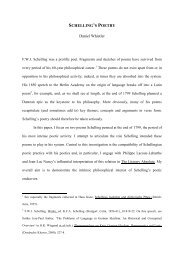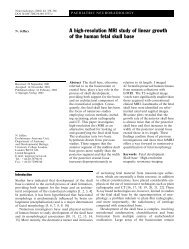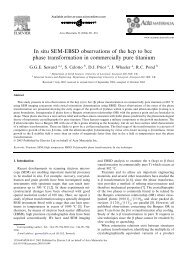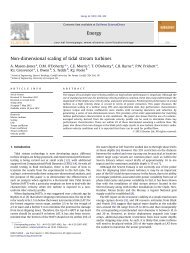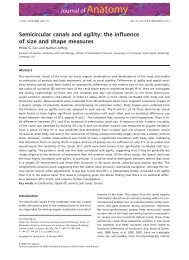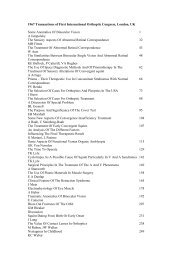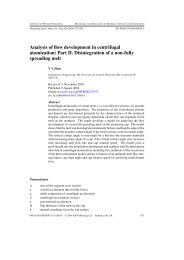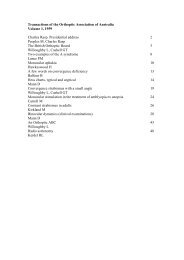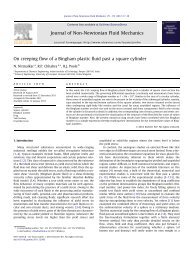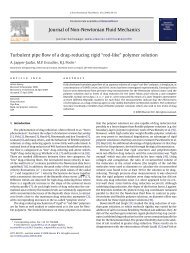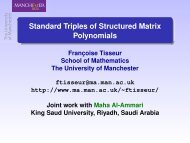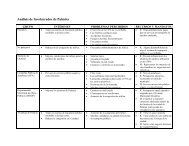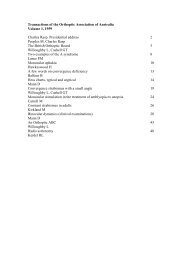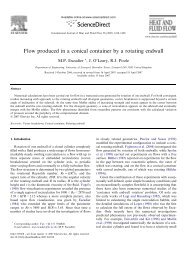The Discipline of Pious Reason: Goethe, Herder, Kant Daniel ...
The Discipline of Pious Reason: Goethe, Herder, Kant Daniel ...
The Discipline of Pious Reason: Goethe, Herder, Kant Daniel ...
Create successful ePaper yourself
Turn your PDF publications into a flip-book with our unique Google optimized e-Paper software.
attraction to a neoplatonic ethics <strong>of</strong> universal attraction. Not only are there examples<br />
from elsewhere in <strong>Herder</strong>’s work <strong>of</strong> him enthusiastically embracing this doctrine,<br />
even in Liebe und Selbstheit itself there are neoplatonic flourishes. <strong>Herder</strong><br />
apostrophises, for example,<br />
To whom can I ascend… except to you, great universal Mother, tender supreme<br />
Father!… Who ought not but to love you, for every creature draws toward you,<br />
points to you? And yet who can love you as one should, since one drowns in the<br />
sea <strong>of</strong> your thoughts and your presentient feelings and sinks into the deepest<br />
depths only beyond oneself… This eternal pull <strong>of</strong> your heart to mine is for me an<br />
innate guarantee <strong>of</strong> my eternal affection for you. (ibid, 4:417-8; p. 117)<br />
Liebe und Selbstheit is therefore not only a polemic against Hemsterhuis, but also a<br />
self-examination. Enacted within the very text <strong>of</strong> the essay is the struggle between<br />
friendship and love, impiety and piety.<br />
Hence, immediately after the above rhapsody, <strong>Herder</strong> insists, ‘Even in the current <strong>of</strong><br />
divine love, the heart remains a mere human heart.’ (ibid, 4:419; p. 117) This claim is<br />
at the centre <strong>of</strong> <strong>Herder</strong>’s interpretation <strong>of</strong> piety and, more specifically, <strong>of</strong> his attempt<br />
to apply his ethics <strong>of</strong> friendship to the human/God relation. Religion should not be<br />
directed towards a unio mystica or ascent to the divine, in which the human self is<br />
annihilated and absorbed into the Godhead. Rather, religion should insist that the<br />
individual relates to God as individual—on a purely human level, without need for<br />
apotheosis or transfiguration. ‘We always remain creatures,’ <strong>Herder</strong> insists (ibid,



